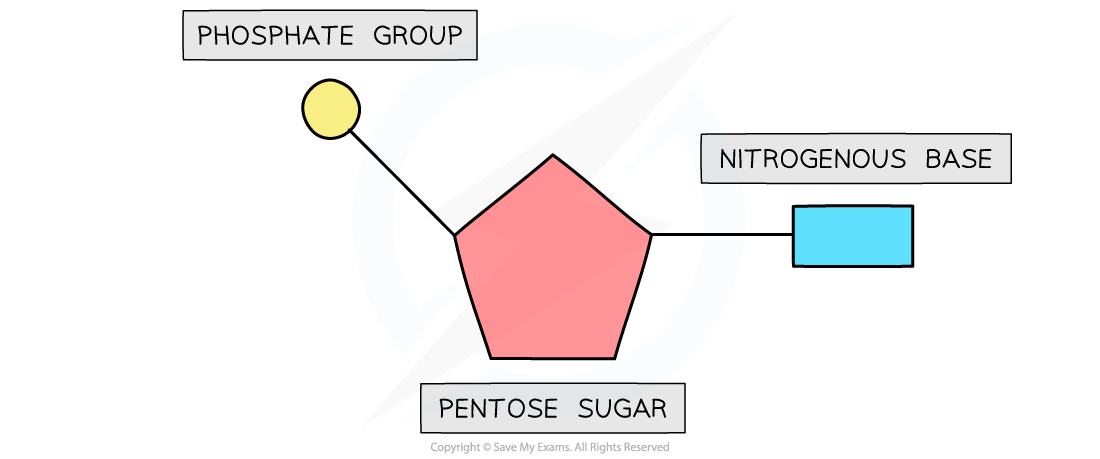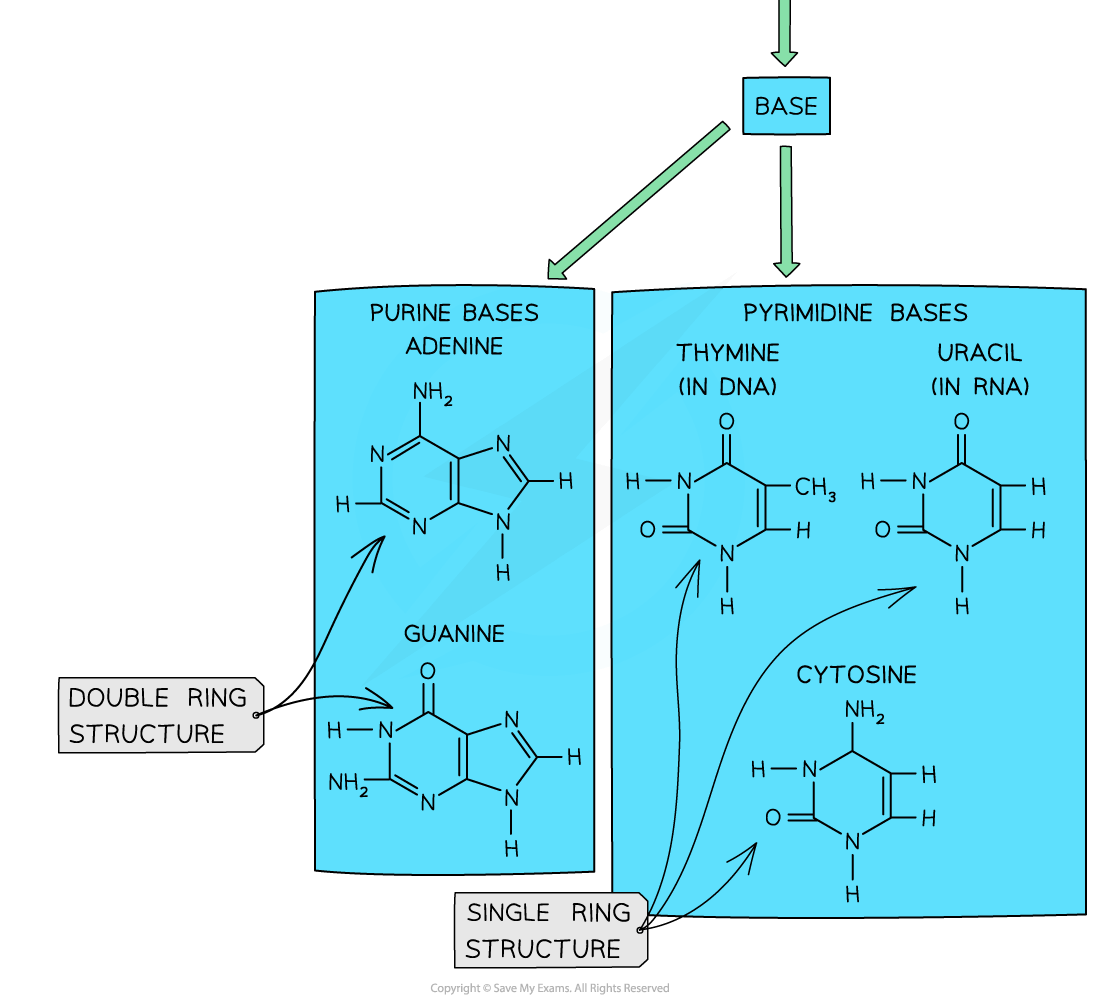Nucleotides (Cambridge (CIE) A Level Biology): Revision Note
Exam code: 9700
Nucleotide structure
Nucleic acids such as DNA (deoxyribonucleic acid) and RNA (ribonucleic acid) are macromolecules
Like proteins (polypeptides) and carbohydrates (polysaccharides), these nucleic acids are polymers
This means they are made up of many similar, smaller molecules (known as subunits or monomers) joined into a long chain
The subunits that make up DNA and RNA are known as nucleotides
Therefore DNA and RNA can also be known as polynucleotides
Nucleotides
Nucleotides are made up of three components:
A nitrogen-containing base (also known as a nitrogenous base)
A pentose sugar (containing 5 carbon atoms)
A phosphate group

ATP
Adenosine triphosphate (ATP) is the energy-carrying molecule that provides the energy to drive many processes inside living cells
ATP is another type of nucleotide and hence it is structurally very similar to the nucleotides that make up DNA and RNA
It is a phosphorylated nucleotide
Examiner Tips and Tricks
You need to learn the different groups that nucleotides are made up of (phosphate groups, pentose sugars and nitrogenous bases).
Purines & pyrimidines
The nitrogenous base molecules that are found in the nucleotides of DNA (A, T, C, G) and RNA (A, U, C, G) occur in two structural forms: purines and pyrimidines
The bases adenine and guanine are purines
This means that they have a double-ring structure
The bases cytosine, thymine, and uracil are pyrimidines
These bases have a single-ring structure


Examiner Tips and Tricks
You don’t need to know the structural formulae of these bases (as shown in the diagram above)—you just need to know which are purines and which are pyrimidines.

Unlock more, it's free!
Was this revision note helpful?
